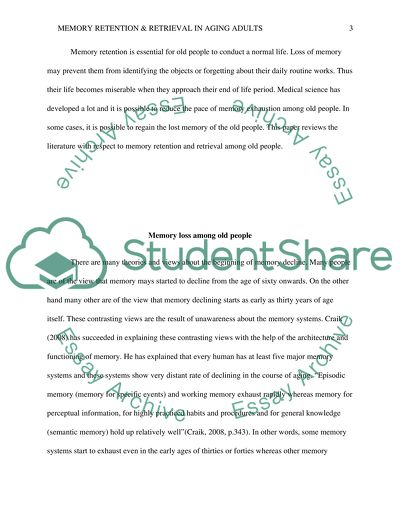Cite this document
(“Memory retention and retrieval in aging adults Term Paper”, n.d.)
Retrieved from https://studentshare.org/environmental-studies/1421443-memory-retention-and-retrieval-in-aging-adults
Retrieved from https://studentshare.org/environmental-studies/1421443-memory-retention-and-retrieval-in-aging-adults
(Memory Retention and Retrieval in Aging Adults Term Paper)
https://studentshare.org/environmental-studies/1421443-memory-retention-and-retrieval-in-aging-adults.
https://studentshare.org/environmental-studies/1421443-memory-retention-and-retrieval-in-aging-adults.
“Memory Retention and Retrieval in Aging Adults Term Paper”, n.d. https://studentshare.org/environmental-studies/1421443-memory-retention-and-retrieval-in-aging-adults.


